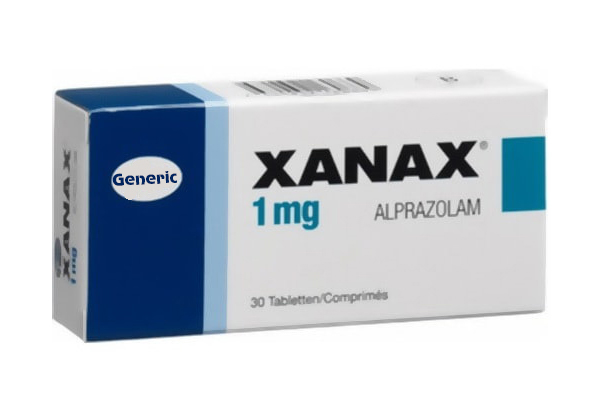Xanax (Alprazolam)
Alprazolam, the active compound in Xanax, exerts its effects by dampening central nervous system activity, thereby diminishing nervous restlessness and yielding an overall calming influence. This reduction in nervous agitation is achieved through the augmentation of gamma-aminobutyric acid (GABA), a natural substance that curbs neuronal excitement and attenuates signal transmission through nerves. Alprazolam facilitates swifter sleep onset, elongates sleep duration, and curtails nocturnal awakenings.
Its sleep-inducing effect is founded on the suppression of cells within the reticular formation of the brainstem. Furthermore, it mitigates the impact of emotional, motor, and autonomic stimuli that could disrupt the sleep process. The moderate anticonvulsant action of Xanax Alprazolam plays a pivotal role in easing muscle spasms and intense tension experienced by patients.
Presented in tablet form, Alprazolam isn't exclusive to Xanax; it constitutes a component in numerous other medications. Swift absorption occurs within the digestive tract, followed by hepatic metabolism, resulting in the creation of active alpha-hydroxy metabolites, ultimately being excreted in urine as glucuronic acid compounds.
Generic Xanax does not tend to accumulate within the body. Maximum blood plasma concentration is attained within an hour of administration. When purchasing Xanax online and adjusting the dosage, the plasma concentration correlates with the increment; approximately 80% of the oral dose binds to plasma proteins. Only a medical practitioner can prescribe this medication, and it is available exclusively through prescription due to its classification within the "B" list of drugs. Self-medication or misuse of inexpensive Xanax, much like any other medication, without prior consultation with a physician can significantly jeopardize human health.
Buy Xanax (Alprazolam) Online Without Prescription
|
|
Uses and Limitations of Xanax, a Benzodiazepine Anxiolytic
Xanax, a benzodiazepine anxiolytic, is exclusively available through a doctor's prescription, yet it's noteworthy that there are channels where Xanax can be acquired without a prescription.
This medication effectively alleviates or substantially mitigates the following conditions:
- Neuroses characterized by unfounded anxiety, irritability, tension, and a perceived sense of danger.
- Somatic symptom disorders that involve sleep disturbances or disorders, including insomnia.
- Diminished or lost appetite.
- Mixed states of anxiety and depression, encompassing panic disorders accompanied (or not) by various phobias.
- Other anxiety-related conditions and neurotic depressions that manifest alongside somatic ailments.
- Reactive-depressive states marked by mood fluctuations or a lack of interest in the surrounding world.
- Withdrawal symptoms, inclusive of those stemming from alcohol or narcotic cessation.
It is important to recognize that while Xanax (Alprazolam) is beneficial for managing these conditions, its prescription and use should be guided by a medical professional to ensure its safety and effectiveness. The availability of Xanax without proper medical oversight can lead to misuse and adverse health consequences.
Xanax Utilization Guidelines
Individuals who procure Xanax online in accordance with their doctor's prescriptions often report a sense of relief from emotional strain, as well as alleviation of acute fear, anxiety, and various other distressing conditions.
Xanax is contraindicated for individuals with the following conditions and disorders:
- Myasthenia gravis.
- Severe depression with inclinations towards suicidal thoughts.
- Acute respiratory failure.
- Hypersensitivity.
- State of shock or coma.
- Acute intoxication from alcohol or drugs (including analgesics, sedatives, or psychoactive substances).
- Pregnancy, particularly during the first trimester.
- Lactation phase.
- Closed-angle glaucoma.
- Age under 18.
For patients with the following medical conditions, the use of Xanax should be exercised with special care and under the supervision of a medical professional:
- Psychosis.
- Chronic liver or kidney dysfunction.
- Recent history of alcohol abuse and evidence of liver impairment.
- Cerebral and spinal ataxia.
- Hyperkinesis.
- Organic brain disorders.
- Hypoproteinemia.
- Substance misuse (including a history of drug abuse).
- Suspected or diagnosed sleep apnea.
- Open-angle glaucoma.
- Advanced age.
These precautions underscore the importance of judiciously approaching Xanax (Alprazolam) use, ensuring that its benefits outweigh potential risks for each individual.


